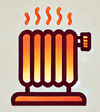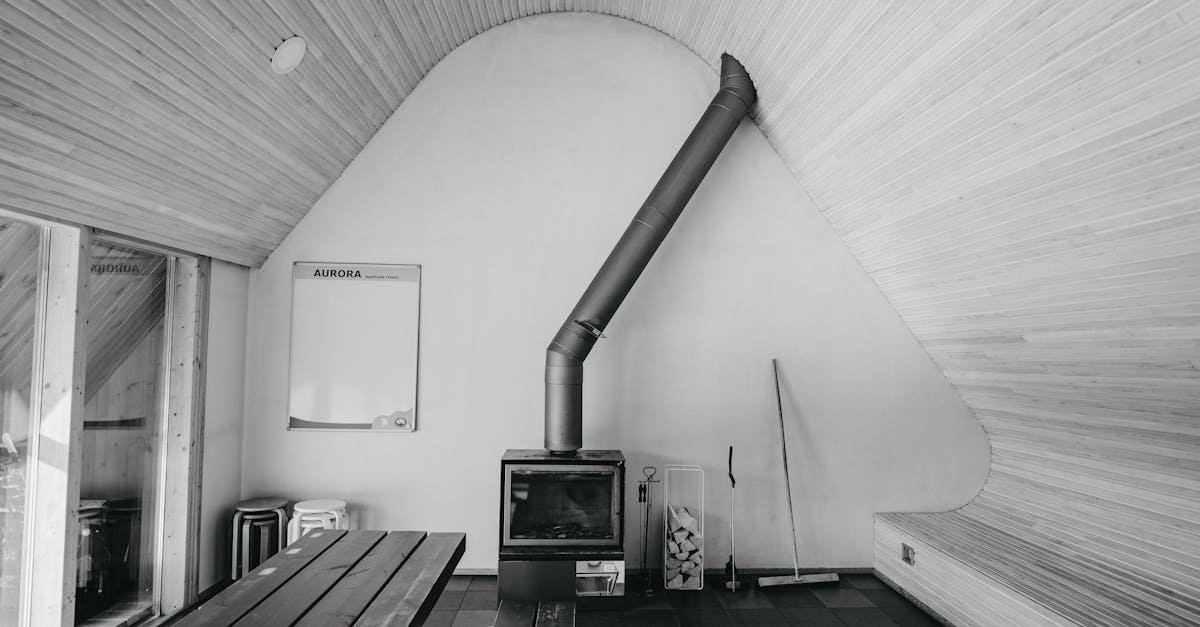If you’re wondering about quiet heater power consumption, it typically ranges from 750 to 1500 watts. This means that depending on the model and usage, you could expect to spend anywhere from $0.08 to $0.20 per hour on electricity.
Understanding how much power your quiet heater uses can help you manage your energy bills and choose the right model for your space. By keeping an eye on wattage and efficiency ratings, you can enjoy a warm, cozy environment without very costly.
Understanding Quiet Heater Power Consumption
Understanding quiet heater power consumption helps you manage energy bills while keeping your space warm. Here’s a closer look at what makes a quiet heater special and how to measure its energy usage.
What Is a Quiet Heater?
A quiet heater operates with minimal noise. You can find these heaters in bedrooms, offices, and other spaces where silence matters. Examples of quiet heaters include:
- Vornado VH200: Operates with 45 dBA at 3 feet, producing a soft fanlike sound.
- TMWINGS Compact Space Heater: Runs under 30 decibels, perfect for undisturbed work or sleep.
- Electric Radiator Heater: Maintains noise levels below 45 decibels, making it suitable for bedrooms.
These heaters are designed for comfort without disrupting your environment.
How Power Consumption Is Measured
Power consumption for quiet heaters is measured in watts (W). You should also look at energy usage over time in kilowatt-hours (kWh). Typical power ratings range from 750 W to 1500 W.
For example, if your heater uses 1,500 W:
- Hourly Cost: Expect to pay between $0.12 to $0.20 per hour.
- Daily Cost: Continuous use can reach about $2.88 to $4.80 over 24 hours.
Knowing these figures helps you understand your potential electricity costs. You can select a model that fits your budget and heating needs.
Factors Affecting Power Consumption
Understanding the factors that influence power consumption for quiet heaters helps you make informed choices. These factors include heater size and capacity, as well as energy efficiency ratings.
Heater Size and Capacity
Heater wattage is key. Most quiet space heaters use about 1,500 watts. Some smaller models use 750 watts, while larger ones may reach 1,800 watts.
Room size also matters. A general guideline suggests using 10 watts per square foot. For example, if you have a 100 square foot room, a 1,000-watt heater works well. This ensures efficient heating without wasting energy.
Energy Efficiency Ratings
Energy efficiency varies among heater types. Infrared and oil-filled heaters often deliver high efficiency. They provide radiant heat, which warms objects directly instead of heating the air. This method can lead to lower energy use and costs.
When choosing a heater, check the energy efficiency rating. Higher ratings typically mean lower power consumption and reduced bills. Always compare options to find the best fit for your needs.
Types of Quiet Heaters
Quiet heaters come in various types, each with unique features and power consumption levels. Understanding these can help you choose the right one for your space.
Electric Heaters
Electric heaters are popular for their ease of use and quiet operation. Most electric space heaters consume around 1,500 watts. This amount of power translates to an energy cost of about $0.12 to $0.20 per hour, depending on your electricity rate. For example, the Vornado VH200 operates at a decibel level of 45 dBA at 3 feet, making it a top choice for a quiet environment. Models like the Lasko Ceramic Portable Space Heater offer oscillation features to spread heat evenly. Both styles maintain a quiet operation while providing efficient warmth.
Infrared Heaters
Infrared heaters use radiant heat to warm objects and people directly instead of heating the air. This method reduces power consumption, making it efficient for larger spaces. These heaters typically consume between 750 to 1,500 watts. Before selecting, check the wattage against the size of your room to ensure you gain the most efficient use. They often operate with low noise levels, making them suitable for bedrooms or offices.
Hydronic Heaters
Hydronic heaters, also known as water heaters, use heated water to provide warmth. They circulate hot water through pipes, radiating heat throughout the area. Hydronic models can have varying power consumption, often ranging from 1,200 to 1,800 watts. Even though their higher wattage, they efficiently heat spaces while maintaining quiet operation. Their design is ideal for long-term heating, as they keep rooms warm even after shutting off.
Benefits of Using Quiet Heaters
Quiet heaters offer distinct advantages for your space. They create a warm environment without the added noise that can disrupt your daily activities.
Comfort and Convenience
Quiet heaters provide consistent warmth, enhancing comfort in your home. You can place them in any room, from bedrooms to home offices, without worrying about distractions. They maintain a cozy atmosphere, allowing you to focus on tasks, relax, or sleep peacefully. Whether you’re working late or enjoying a movie, these heaters discreetly provide heat without interrupting your experience.
Reduced Noise Pollution
Reduced noise pollution is a significant benefit of quiet heaters. Unlike traditional heaters, which can be loud and disruptive, quiet heaters operate silently. This feature is essential in quiet spaces such as nurseries or study areas. You can enjoy the warmth without constant noise interruptions. This quiet operation promotes better concentration and relaxation, creating an ideal environment for various activities.
Conclusion
Choosing the right quiet heater can significantly impact your comfort and energy costs. By understanding power consumption and efficiency ratings, you can select a model that not only warms your space but also fits your budget.
Whether you opt for an electric, infrared, or hydronic heater, each type offers unique advantages to enhance your environment. With the right information, you can enjoy a cozy atmosphere without the noise or high energy bills. Prioritizing efficiency and power usage will keep your space warm and your expenses in check.








